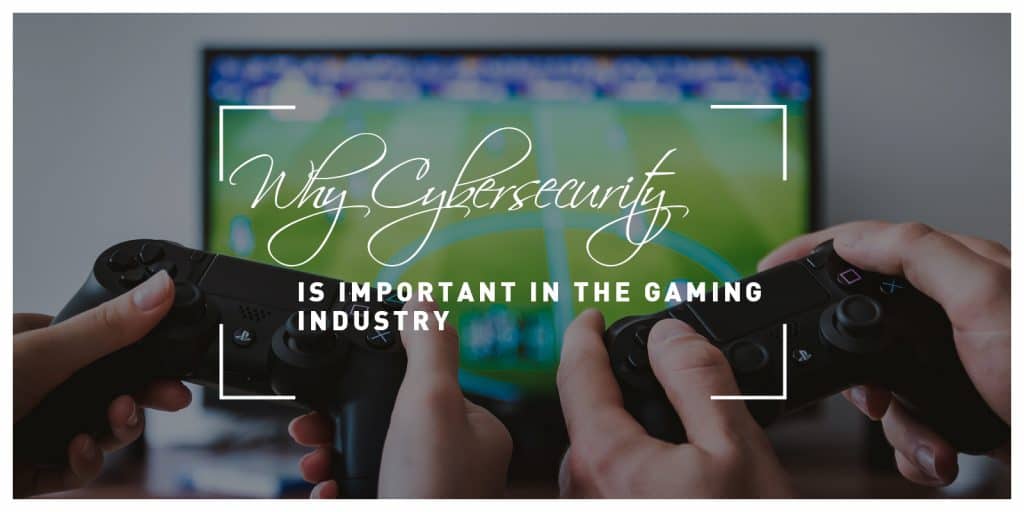Games have been around for a long time; almost as long as computerized technology entered the consumer market. It comes as no surprise that over the years, the gaming industry has evolved and grown to heights that no one could have thought to be possible. Today, the gaming industry stands at more than $197 Billion.
Gaming has turned out to become a market where most if not all people, are directly or indirectly involved. For instance, gamers who are around the ages of 12 – 15 years, rely on their parents for their credit cards to make in-game purchases. A situation like this involves more than just one person.
Such a use case presents just one of many possible exploitations hackers can use to their advantage. From stealing payment information to disrupting game experiences, the possibilities are definitely too much to quantify.
This makes it all the more important to integrate cybersecurity in this market and this is exactly why so many gaming studios are now focusing on top-line security measures in the game development phase. Various cybersecurity approaches and technologies, such as DevSecOps and binary analysis tools, are now being used more than ever to ensure gamers are getting seamless experiences when they play games.
Here are some ways hackers are able to breach security within the gaming-tech space:
1. Game Cheats and Mods:
Mods refer to items and features that you see in games that you won’t find on in-game stores or marketplaces. This can include character skins, weapons, or other utilities. This is made possible by merging cheating software and coding with the game’s software. Although possible for games on any device, you’ll find this trend to be more common on mobile and PC games. Through specialized coding, mods enable players to gain certain advantages over other players, which in turn builds frustration within gamers who are not using mods. This causes many gamers to quit the games, leaving their standard subscriptions and potential in-game purchases in the future.
Destiny 2 and PUBG are prime examples where players use mods to win. Destiny 2 even reported a loss of users due to these mods and has even gone to court for this.
2. PII Leaks and Phishing Attacks:
Personal Identifiable Information (PII) leaks and Phishing attacks are some of the more damaging cybersecurity threats that have brought monetary losses to gamers. By utilizing personal as well as payment-related information, hackers use this data to either sell to other parties, make illegal purchases, or demand ransoms. One of the most prominent cases of such attacks is when Grand Theft Auto was targeted, where a website was created for game rewards whereas, in actuality, it was used to collect credentials.
3. DDOS Attacks:
Gamers often experience bad gameplay when gaming. This is due to attacks against game servers or personal devices which result in disrupting well-established connections. Distributed Denial-of-Service (DDOS) attacks are there to ensure gamers experience lagging and zero playability.
4. Payloads & Malware:
A way to infect games and devices, overall, malware is often deployed by injecting bad code into a game. Another way this is done is by making users download wrong files or fake applications. Although more common through torrent downloads, mobile games are also prone to this threat.
Practices for Cyberattack Protection in Gaming:
Recognizing the threats in today’s world, game studios are now adopting various practices to counteract the impact of these cyberattacks:
- Security in The Game Development Process: Security is now being made a much bigger priority within the overall game development process. By employing SecOps tools and engineers, practices like threat modeling and statistical analyses are making a considerable contribution towards cybersecurity.
- Monitoring in the Production Phase: Obseravability tools are being used to monitor data once games go into the production phase. This is enabling dynamic alerting as well as automated incident responses.
- Authentication Methods: Two Factor Authentication (2FA) is a very common practice to ensure passwords are protected and prevent cybersecurity breaches like credential stuffing.
- Infrastructure Security: By optimizing and securing infrastructures like databases, networks, and servers, practices like placing protection on end-points and storing data in different locations is limiting the impact of cyberattacks. Security exercises like Pen testing and automated testing are now also being run against games to ensure that security vulnerabilities are closed.
Cybersecurity now, more than ever, has become a very important aspect when it comes to game development, and the more focus game studios place on this, the better it would be for end-users. The road to eradicating cyberattacks in gaming is indeed a long one, but with the right development pipelines, these incidents can definitely be reduced.
